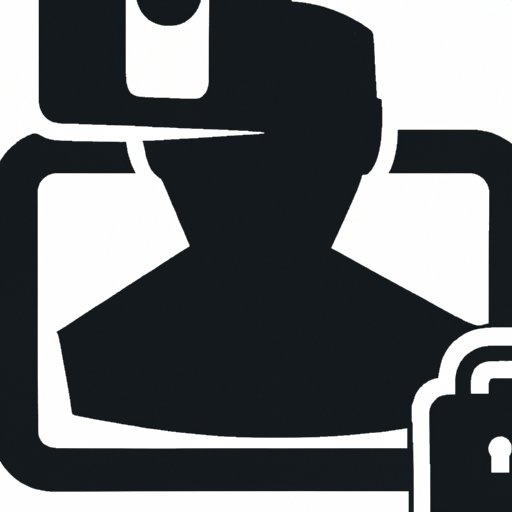Introduction
Facebook is one of the most popular social networking platforms, but it can also be one of the most intrusive. Keeping your Facebook profile secure and private is crucial to protecting your personal information and online safety. In this article, we’ll provide a step-by-step guide on how to lock down your Facebook profile, as well as best practices, FAQs, and the benefits of having a private profile.
Step-by-Step Guide
The first step towards securing your Facebook profile is to navigate to your profile page and click on the three dots located at the top right corner of your profile photo. From there, select “Privacy Settings and Tools.”
Next, you’ll want to review your current privacy settings. This includes reviewing who can see your future posts, who can see your past posts, who can send you friend requests, and who can look you up using your email address or phone number. Depending on your preferences, you may want to narrow these settings to “Friends Only” or “Only Me.”
Another important step is enabling login notifications and login approvals. Login notifications alert you whenever someone logs into your account from a new device, while login approvals require a unique code to be inputted before logging in from a new device.
If you want to prevent non-friends from sending you messages, you can change your messaging preferences to “Friends Only.” Additionally, you can set your profile to be unsearchable through search engines if you don’t want people to find your profile this way.
Finally, you can limit the information apps and websites receive from Facebook by changing your third-party apps settings. To do this, go back to “Privacy Settings and Tools” and select “Apps and Websites” and remove any outdated or unused apps that may have access to your Facebook information.
Importance of Privacy
It’s important to keep your Facebook profile private and secure to protect your online safety and privacy. Sharing too much information or leaving your profile exposed can lead to identity theft, cyberstalking, or other online dangers. By keeping your profile private, you’ll have more control over who can access your content and information.
To improve your online safety and privacy, it’s also important to limit the amount of personal information you share on social media platforms. This includes not sharing personal identifying information like your home address or phone number, not giving out your social security number, and not sharing personal photos or videos with strangers.
Best Practices
Here are some best practices to keep your Facebook profile private and secure:
- Create a strong and unique password
- Regularly review and update your privacy settings
- Be careful when sharing personal information or photos
- Enable two-factor authentication
- Don’t accept friend requests from people you do not know
By following these best practices, you’ll be able to stay safe and secure while using Facebook and other social media platforms.
FAQs
Q: How do I know if my Facebook profile is already set to “private?”
A: To check if your profile is private, go to your profile page and click on the three dots located at the top right corner of your profile photo. Click on “View As” to see how your profile appears to other people. If you see any information that you do not want to be public, change your privacy settings accordingly.
Q: How often should I review my Facebook privacy settings?
A: We recommend reviewing your privacy settings every 6-12 months, or whenever there are significant changes to Facebook’s privacy policies or features.
Video Tutorial
Check out this helpful video tutorial on how to lock down your Facebook profile:
Benefits of a Private Profile
Having a private Facebook profile brings numerous benefits, including greater control over who can see your content, increased privacy and security, and the ability to protect your personal information. You can enhance your privacy and security even further by following our best practices and recommendations outlined in this article. Remember, the more proactive you are about your online safety and privacy, the better protected you’ll be.
Conclusion
By taking the necessary steps to lock down your Facebook profile, you’ll increase your online privacy and safety. While the process can seem daunting, the step-by-step guide outlined in this article, as well as the best practices and FAQs, provide an easy-to-follow roadmap. Don’t forget to review your privacy settings regularly to ensure that you’re taking advantage of the latest security features and protecting your personal information.
